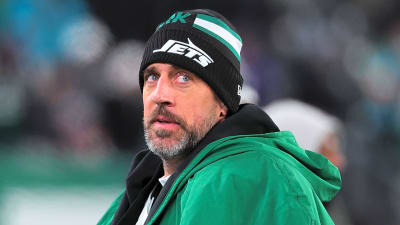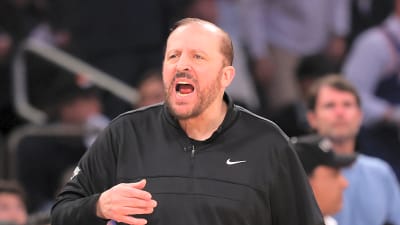
When the New York Jets pulled the trigger on a trade for quarterback Aaron Rodgers two years ago, part of the appeal to execute the deal with the Green Bay Packers was the prospect of convincing the veteran quarterback to take a discount, which would allow the front office to build a stronger roster around him.
Rodgers did that to some degree, taking a real paycut, and the structure was relatively team-friendly. However, the experience was a failure, and now the Jets will have to handle the consequences anyway without the benefit of the wins to back the narrative up.
Over the two years Rodgers played for the Jets, he received $75.05 million, a $37.525 million average. The amount looks fair for a veteran quarterback in today's NFL, but the Jets structured it in a way to maximize cap space. The cap hits were low, $8.888 million in 2023 and $17.161 million in 2024.
The problem is that the bill comes due eventually, and the Jets will have its impact now that Rodgers has been cut. The quarterback's release was officially processed by the NFL on June 2, because New York had cut him with a post-June 1 designation.
The idea behind it was that by doing that, the Jets would create more cap room in 2025. The drawback is that the Jets will still handle dead money from Rodgers in 2026.
Financial burden
Now, the Jets will have $14 million in dead money in 2025 and $35 million in 2026. The team is obviously taking a reset, with the lowest cash spending in the league this year — $244.324 million, the only team under $250 million.
It will be a reasonable situation to manage Rodgers' dead money, as the franchise is already expecting to take a step back and clean their sheet before being ready to compete in a few years once again.
How it happens
The NFL has what is called a hard salary cap, but it's really not that hard. Nobody is allowed to go over the cap like it happens in the NBA with exceptions. However, teams can pay the players' compensations in different ways to effectively spend more than the cap would allow.
Teams can use signing bonuses, which are prorated over the life of the contract (up to five years), and even add void years to spread the cap hit. With Aaron Rodgers, the Jets paid as much money as possible in the way of a signing bonus, so the cap hit while Rodgers was playing would be lower.
Whenever the player gets released or traded, though, the money already paid that hasn't hit the cap yet accelerates to finally be accounted for. The post-June 1 designation is important because the acceleration only comes in the following year. So right now, the Jets will only have the $14 million cap hit projected for this year, and the rest accelerates in 2026.
Rodgers' era in New York included only 18 starts, 17 of them in 2024 after he had suffered an Achilles injury in the previous season. He finished his actual only season on the Jets with 28 touchdowns, 11 interceptions, and a 90.5 passer rating.
More must-reads:
- Pros, cons of Steelers embarking on the Aaron Rodgers experience
- Browns confirm Dillon Gabriel news amid QB competition
- The 'NBA assist champions since 1976-77' quiz
Breaking News
Trending News
Customize Your Newsletter
 +
+
Get the latest news and rumors, customized to your favorite sports and teams. Emailed daily. Always free!







